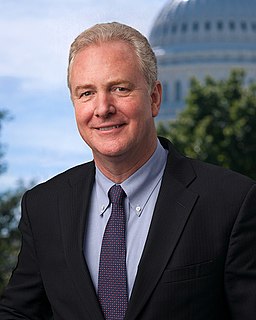Top 1200 Debt Quotes & Sayings - Page 3
Explore popular Debt quotes.
Last updated on April 20, 2025.
Well, as I said, you know the issue of Greek debt, they've grasped the principle of debt reduction. I think most people would argue that probably more needs to be done on that front, and they've just begun to take the first steps to accepting that there's going to have to be much closer economic integration in Europe.
A consolidation makes sense only if you can lower your overall interest rate. Many people consolidate by taking out a home equity line loan or home equity line of credit (HELOC), refinancing a mortgage, or taking out a personal loan. They then use this cheaper debt to pay off more expensive debt, most frequently credit card loans, but also auto loans, private student loans, or other debt.
The model for our early bankruptcy laws was Deuteronomy, the idea that, under certain circumstances - in Deuteronomy, it is simply the passage of seven years' time - people are released from debt, simply because they are released from debt. No more debt. You start over again. This has been a very powerful model in this country. It's being destroyed now. People talk about how much new employment, new wealth, and so on are continuously generated in this country.
Do not confuse "duty" with what other people expect of you; they are utterly different. Duty is a debt you owe to yourself to fulfill obligations you have assumed voluntarily. Paying that debt can entail anything from years of patient work to instant willingness to die. Difficult it may be, but the reward is self-respect.
It is a well-settled principle of the international code that where one nation owes another a liquidated debt which it refuses or neglects to pay the aggrieved party may seize on the property belonging to the other, its citizens or subjects, sufficient to pay the debt without giving just cause of war.
The Bible is clear about two principles: (1) We always need to forgive, but (2) we don’t always achieve reconciliation. Forgiveness is something that we do in our hearts; we release someone from a debt that they owe us. We write off the person’s debt, and she no longer owes us. We no longer condemn her. She is clean. Only one party is needed for forgiveness: me. The person who owes me a debt does not have to ask my forgiveness. It is a work of grace in my heart.
Even men who were engaged in organizing debt-serf cultivation and debt-serf industrialism in the American cotton districts, in the old rubber plantations, and in the factories of India, China, and South Italy, appeared as generous supporters of and subscribers to the sacred cause of individual liberty.
So we are in for years of debt deflation. That means that people have to pay so much debt service for mortgages, credit cards, student loans, bank loans and other obligations
that they have less to spend on goods and services. So markets shrink. New investment and employment fall off, and the economy is falls into a downward spiral.
Virtually all student debt in the US is now held by the federal government. It would therefore be a relatively simple matter to forgive some, if not all of it. This would enable young people to transition much more easily into creating their own households and families. At the same time, if the government is going to enact a major program of student debt forgiveness, it should be at least equally committed to relieving the heavy mortgage debt burdens still carried by tens of millions of non-affluent households in the aftermath of the 2007-09 financial crash and Great Recession.
We feel led to caution . . . against forming the bad habit of incurring debt and taking upon themselves obligations which frequently burden them heavier than they can bear, and lead to the loss of their homes and other possessions. We know it is the fashion of the age to use credit to the utmost limit. . . . We, therefore, repeat our counsel . . . to shun debt. Be content with moderate gains, and be not misled by illusory hopes of acquiring wealth. . . . Let our children also be taught habits of economy, and not to indulge in tastes which they cannot gratify without running into debt.
First in point of time and interest comes the mortgage debt, i.e. the claim for the return of money lent on the security of some tangible object. Such claims are among the earliest fruits of a commercial civilization, and are nearly always affected the same way, viz. by the deposit or pledge of the security with the creditor, to be redeemed or returned on the payment of the debt.
The PUP came into office in 1998 when the public debt of Belize was over $600 million and the economy was at a standstill. When we left office in 2008, ten years later, the debt was higher, but a lot was accomplished: the economy was transformed and the social and physical infrastructure of the country significantly upgraded.
I am for a government rigorously frugal & simple, applying all the possible savings of the public revenue to the discharge of the national debt; and not for a multiplication of officers & salaries merely to make partisans, & for increasing, by every device, the public debt, on the principle of its being a public blessing.
Allow a government to decline paying its debts and you overthrow all public morality-you unhinge all the principles that preserve the limits of free constitutions. Nothing can more affect national prosperity than a constant and systematic attention to extinguish the present debt and to avoid as much as possibly the incurring of any new debt.























































